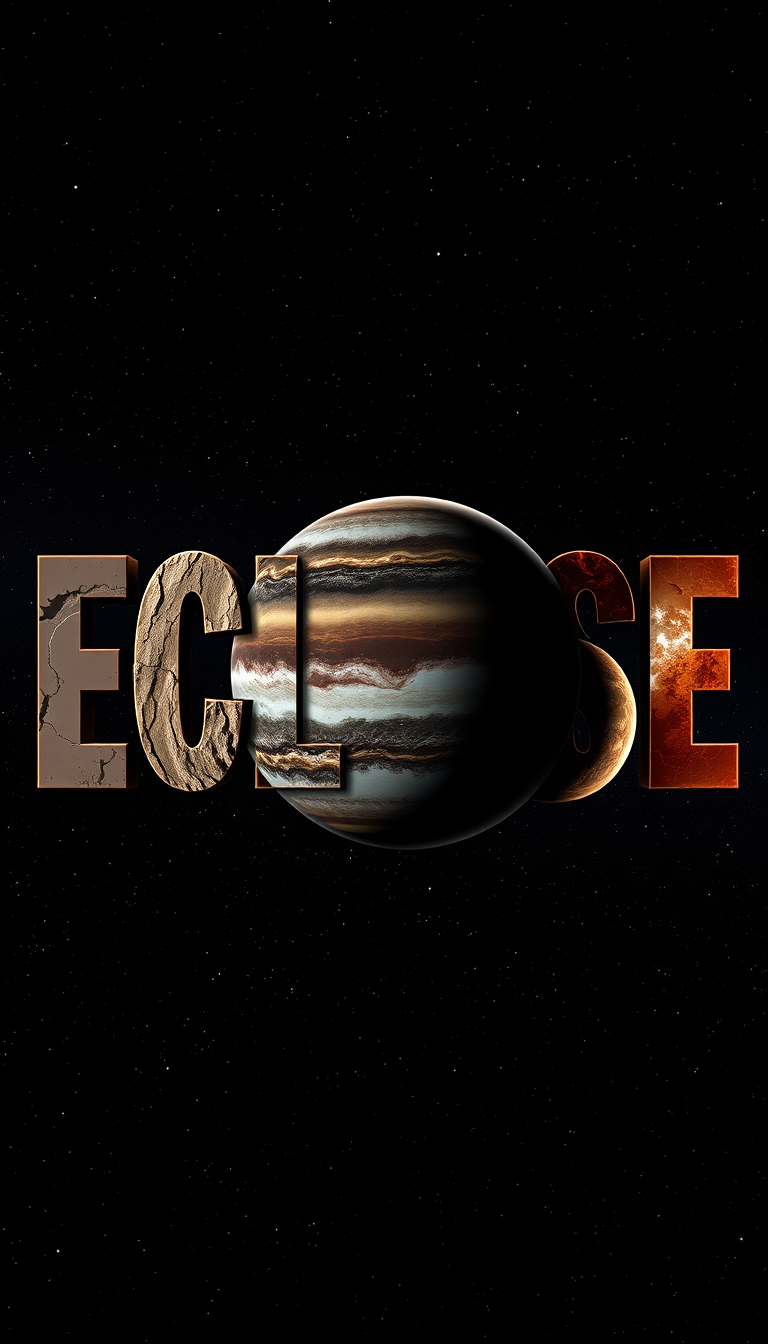AI Image Created By Flux AI Image Generator

Prompt
Main Character: The word "ECLIPSE" formed by a unique arrangement of terrestrial and gas planets. Each letter is represented by a different planet, carefully positioned to create the overall word. The terrestrial planets, representing the letters E, C, L, I, P, and S, are depicted with rocky surfaces, craters, and varying atmospheric conditions. The gas giant, representing the letter E, is depicted with swirling clouds and a prominent ring system. Background: The vast expanse of space serves as the backdrop, filled with distant stars and galaxies. The blackness of space provides a stark contrast to the vibrant colors of the planets, making them stand out prominently. Nebulae and distant galaxies add depth and visual interest to the background, showcasing the immensity and beauty of the cosmos. Visual Style: The visual style should be hyperrealistic, resembling a photograph captured by a powerful space telescope. The planets should be depicted with intricate detail, showcasing their unique features and atmospheric conditions. The lighting should be realistic, with the planets illuminated by a nearby star, casting shadows and highlighting their three-dimensional forms. The overall tone should be one of awe and wonder, inspiring a sense of curiosity about the vastness and mysteries of the universe.
Image Analysis
Emotional Analysis
Application Scenarios
Space Education
Description: Developing educational materials for a space science curriculum.
Potential Use: To create engaging visuals that explain the characteristics of terrestrial and gas planets.
Planetarium Showcase
Description: Creating a digital art piece for a planetarium exhibition.
Potential Use: To visually represent the arrangement and diversity of planets in our solar system.
Film Production
Description: Using the visual representation in a science fiction film.
Potential Use: To enhance the narrative of space exploration and create captivating visuals.
Astronomy App
Description: Designing a mobile app for astronomy enthusiasts.
Potential Use: To provide a unique interface for learning about planets and their characteristics.
Book Illustration
Description: Publishing an illustrated book on the solar system.
Potential Use: To attract readers and make the content visually stimulating.
Technical Analysis
Quality Assessment: High quality with potential for engagement in educational contexts.
- Hyperrealistic depiction of planets
- Detailed atmospheric conditions
- Strong contrast between planets and the backdrop of space
- Enhancing the intricacy of planetary details
- Improving color contrast for better visibility
- Incorporating more dynamic lighting effects